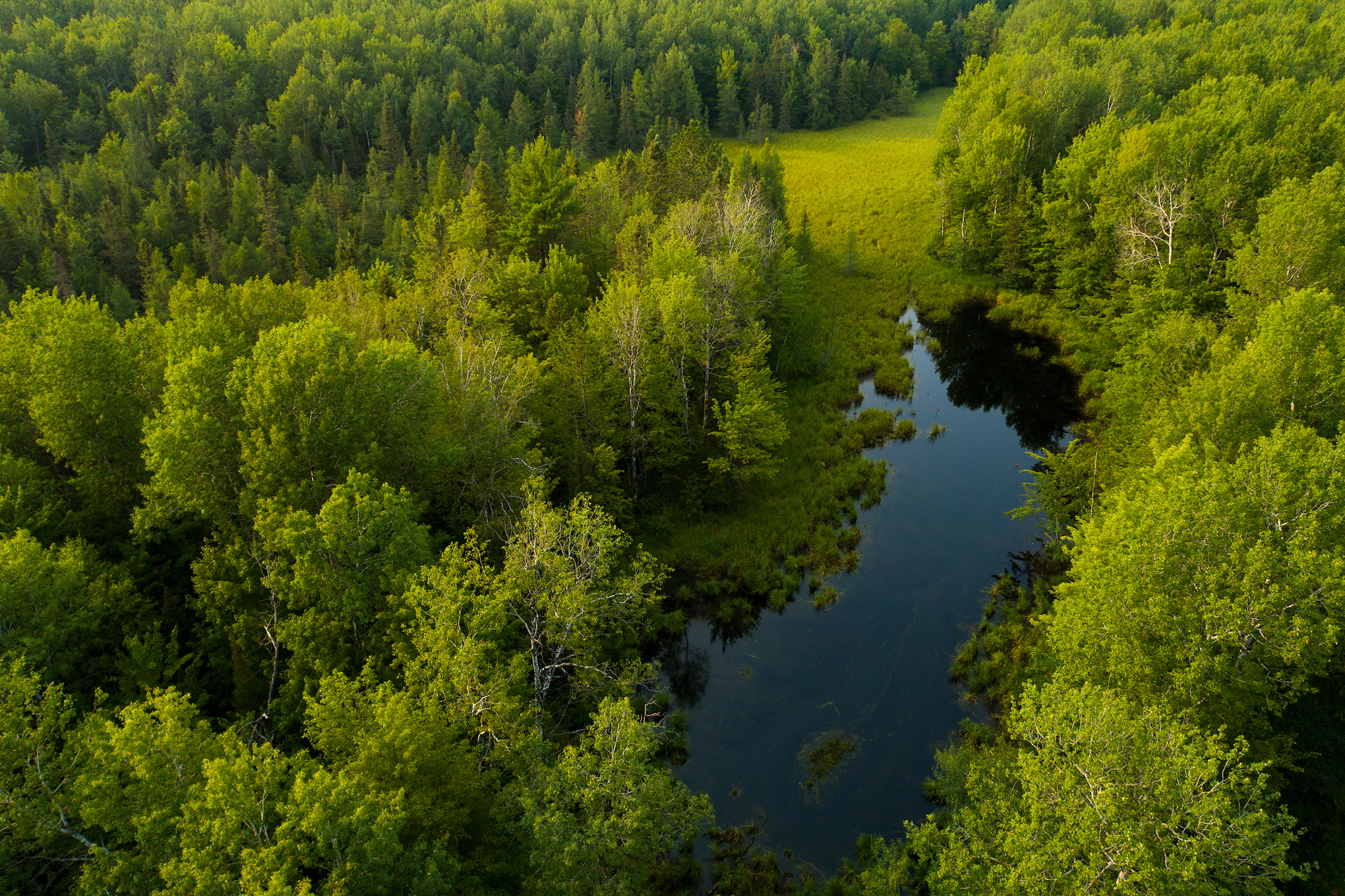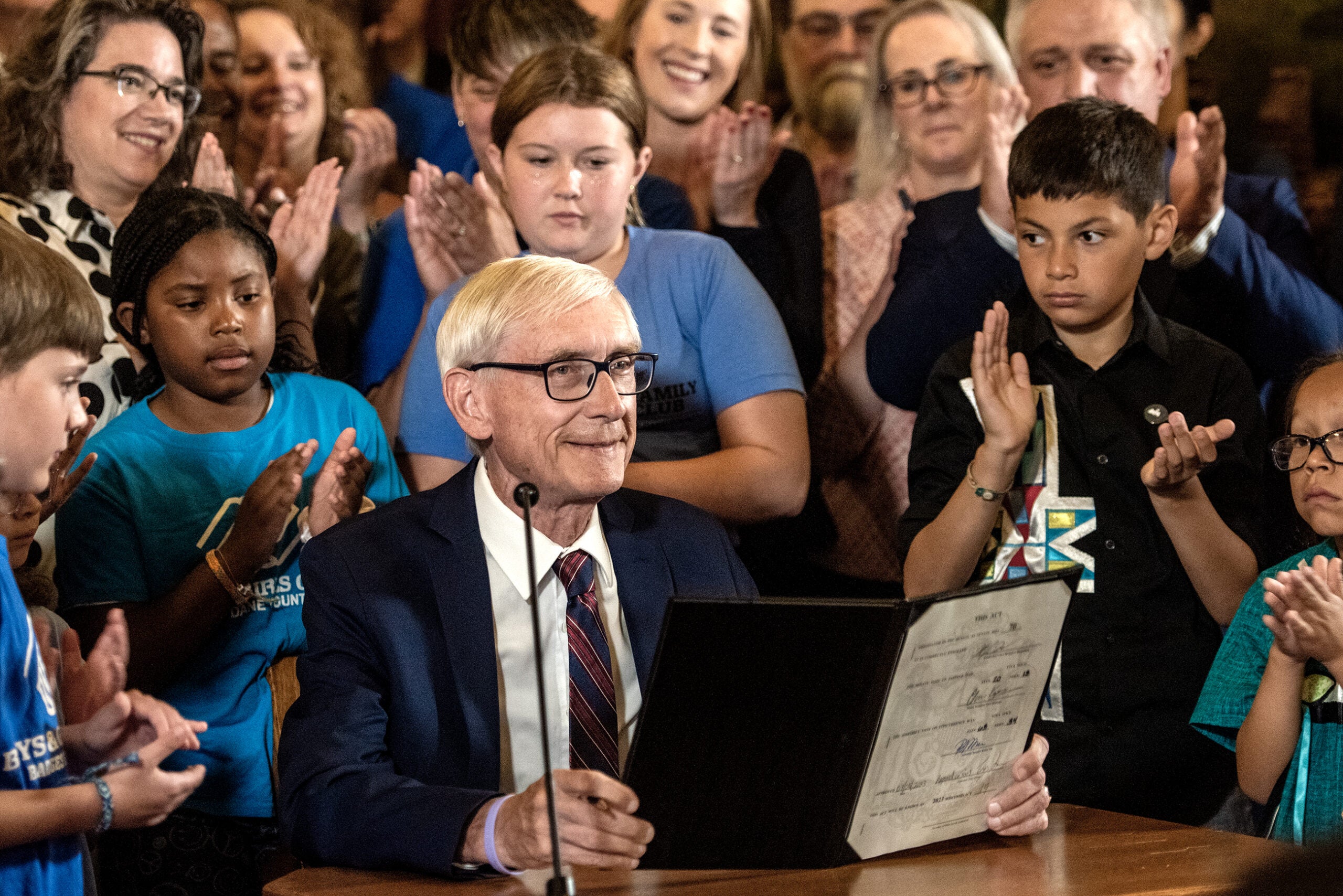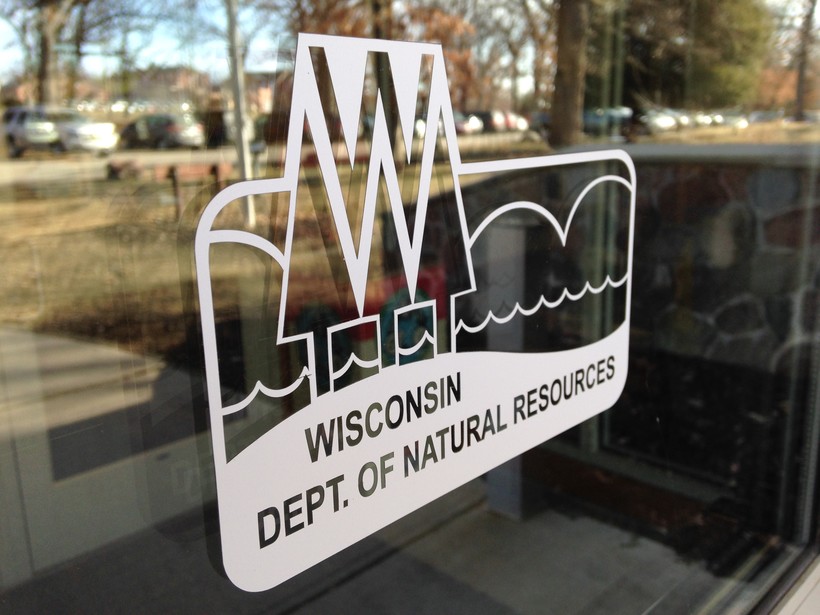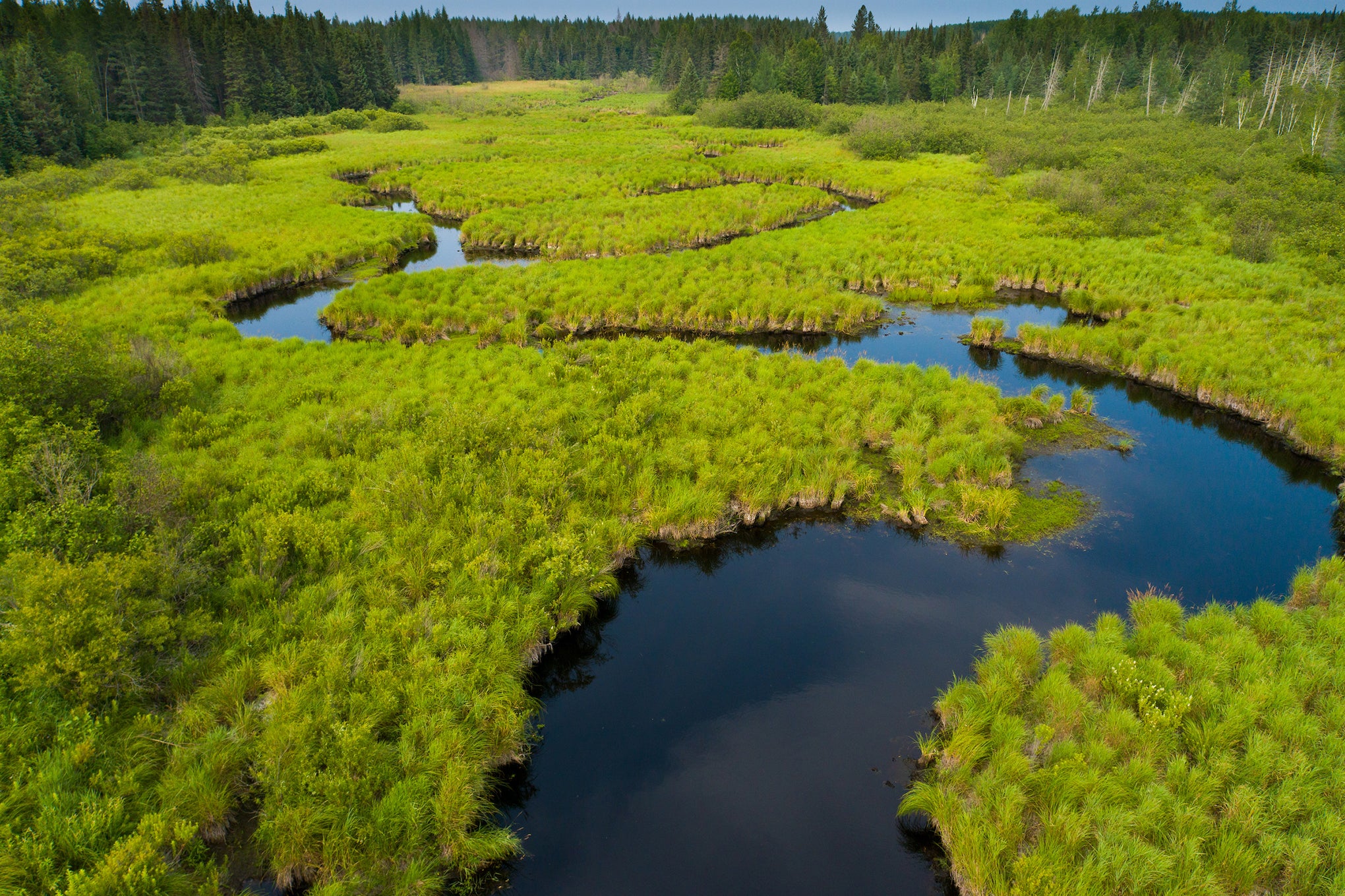Gov. Tony Evers used his partial veto to give the Department of Natural Resources access to roughly $20 million in unused borrowing authority in the state’s new two-year budget. The money hasn’t been used in previous years by the Knowles-Nelson Stewardship Program.
Among dozens of vetoes, Evers struck a provision in the budget that would have provided $2.5 million in unobligated bonding authority under the stewardship program for improvements to northern Wisconsin fish hatcheries.
In doing so, a Legislative Fiscal Bureau analysis states Evers deleted reference to specific funding levels and projects. He also eliminated reference to which fiscal year borrowing allotments the DNR could tap.
Stay informed on the latest news
Sign up for WPR’s email newsletter.
“This veto will allow the Department of Natural Resources to access all unobligated stewardship bonding authority to invest in critical projects that will protect, preserve, and provide access to Wisconsin’s natural resources,” Evers wrote in his veto message.
Wisconsin Public Radio reached out to the DNR for an interview on the changes to the program’s bonding authority. In a statement, a DNR spokesperson said the agency is evaluating the impact of the partial vetoes to its budget.
According to the Legislature’s nonpartisan budget office, the budget now requires the DNR to use any stewardship bonding authority that had lapsed from any year’s allotments under its subprograms for land acquisition, property development and local assistance, and recreational boating aids. The budget now allows those funds to be used for property development, including drilling wells, facility maintenance and construction of new buildings.
The state had around $20.3 million in unobligated funds across those three programs at the end of June 2022. The stewardship program is currently funded through 2026 at roughly $33 million, including around $25 million through bonding. Evers’ vetoes allow any unused borrowing allowance to also be spent through 2026.
Some bonding under the program hasn’t been spent as the Republican-controlled Joint Committee on Finance has blocked or killed funding for land acquisitions. That includes the rejection of $4 million in stewardship funding for the Pelican River Forest this spring. If funded, the project could set aside up to 70,000 acres of land east of Rhinelander, becoming the largest land conservation effort in state history.

In his veto message, Evers objected to specific earmarks and called out the committee’s passive review process that allows members to raise anonymous objections to block stewardship projects. While some GOP lawmakers have made their concerns public, the governor had sought to require lawmakers to publicly announce their objections to projects under his budget proposal.
“(M)any valuable Stewardship projects have been delayed or denied leaving unused and unobligated bonding authority at the end of each year,” Evers wrote. “It is my sincere desire that we work together to fix this broken system for approval of beneficial conservation projects.”
In April, the committee’s co-chair, Rep. Mark Born, R-Beaver Dam, said its review process was not broken when the committee denied stewardship funding for the Pelican River Forest.
“This is not broken,” Born said. “You just wish it was because you don’t like the oversight.”
WPR reached out to Born and committee co-chair Sen. Howard Marklein, R-Spring Green, about the governor’s changes. Marklein had no comment, and Born didn’t respond.
Sen. Romaine Quinn, R-Cameron, said the governor’s partial veto was a “slap in the face” to northern Wisconsin. The money would’ve funded improvements at hatcheries in his district that Quinn said are in disrepair.
“The argument that he didn’t want to use stewardship bonding — we do this all the time,” Quinn said. “So, that’s just a cop out.”
George Meyer, a former DNR secretary, called the governor’s move a “very good veto.”
“This idea that one legislator…can secretly stop a project that complies with the state stewardship law is truly contrary to how good government should work, how democracy should work,” Meyer said. “They don’t have to defend it publicly, and then it causes damage to the applicants, to landowners, and everybody associated with the project.”

Charles Carlin, strategic initiatives director with Gathering Waters, said the nonprofit conservation group understands the state’s finance committee has an important role in ensuring that lawmakers are responsible stewards of taxpayer money.
“That being said, it is absolutely the case that those conversations should happen in public,” Carlin said.
While the DNR can now commit unspent funds, it’s unclear just how much unobligated stewardship bonding authority is available now. Calculations of how much borrowing allowance remains from the fiscal year that just ended are ongoing.
Spending under the program dropped to its lowest level in at least two decades to $14.1 million last year, according to a report by the Wisconsin Policy Forum. That’s down 83 percent from $84 million in 2007 before adjusting for inflation. Funding under the stewardship program has been scaled back as some GOP lawmakers have expressed concerns about converting private properties to public lands and taking them off the tax rolls.
Wisconsin Policy Forum researcher Tyler Byrnes said it’s unclear whether the DNR’s use of the program’s unobligated funds would be subject to the committee’s approval.
“I think there’s one way to read it that Joint Finance has review authority over any funds that gets spent through this specific appropriation,” Byrnes said. “I think there’s another way to read (the budget) that it says ‘the department shall obligate,’ and so they don’t have that authority.”
All stewardship land acquisitions that cost more than $250,000 or are located north of Highway 64 are subject to the finance committee’s approval through its 14-day passive review process, according to the Legislative Fiscal Bureau. As part of the new shared revenue law, projects north of Highway 8 will also require local approval of stewardship projects before the agency can commit funds or submit it to the committee for review.
However, the agency wouldn’t need the committee’s approval to use unspent funds for property development because those requests go through the Building Commission, which may authorize any project that is $2 million or less under the budget.
Wisconsin Public Radio, © Copyright 2025, Board of Regents of the University of Wisconsin System and Wisconsin Educational Communications Board.




